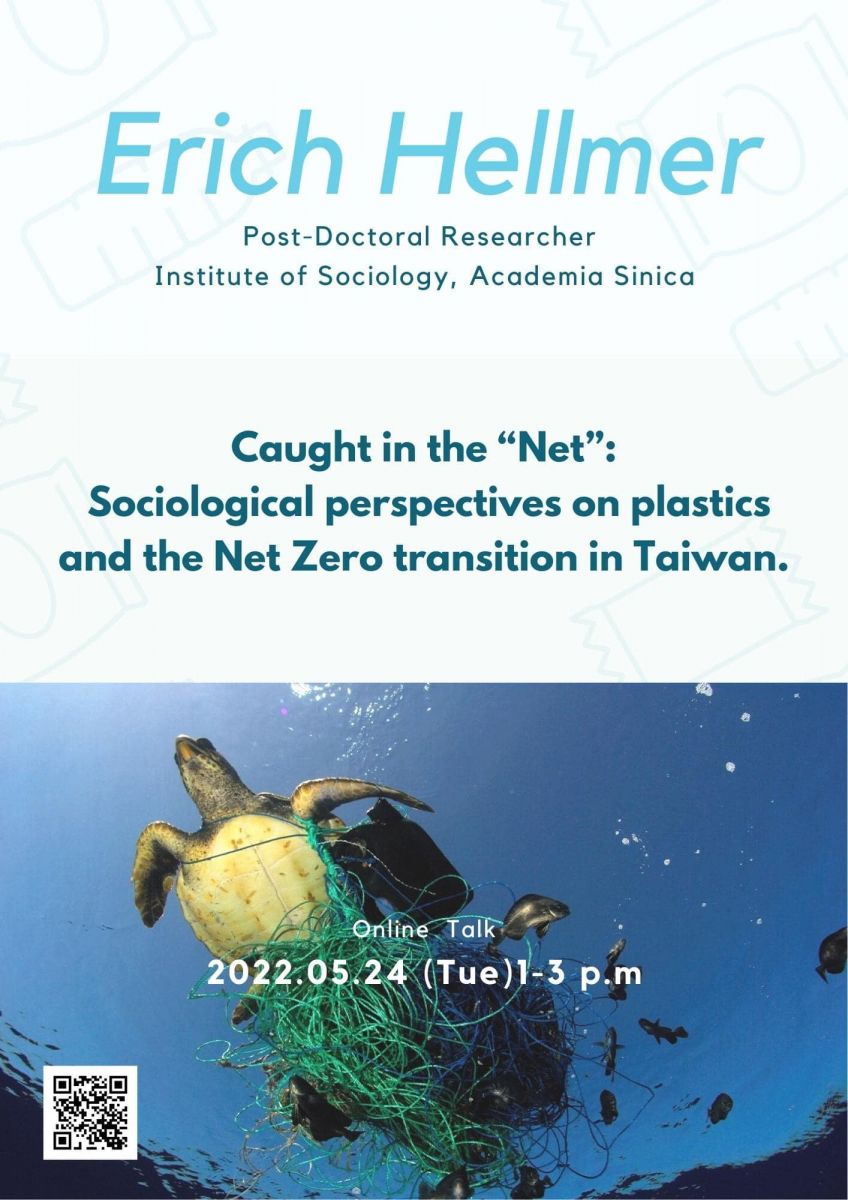《Caught in the “Net”: Sociological perspectives on plastics and the Net Zero transition in Taiwan.》
▲Speaker / Erich Hellmer
Post-Doctoral Researcher, Institute of Sociology, Academia Sinica
▲Date ─ 2022.05.24 (Tue)1-3 p.m
▲Venue ─ Online talk
▲Registration ─ Please contact me on Facebook to get the link.
Recent years have seen a surge of global public interest in plastic pollution – in no small part due to tragic images of marine animals tangled in plastic waste or even literally filled with bits of plastic garbage. That plastics are such a tangible problem, and one which we feel we can personally do something about, have made them one of the world’s leading environmental focal points. In fact, some argue that interest in plastics has come to surpass, and even detract from, public interest in the more pressing environmental crisis of climate change. Yet plastics are a climate problem. Over 95% of plastics are made from oil and natural gas (petrochemicals), and these base chemicals are making up an increasingly important part of oil and gas profits as energy and transportation technologies move towards renewables. Plastics alone are projected to make up about 10% of the global carbon budget established by the Paris Climate Agreement. To put this in perspective, Taiwan as a whole contributes less than 1% to global carbon emissions despite being one of the world’s most advanced economies and being heavily dependent on carbon-intensive industries. So why are plastics and climate change not discussed more as related problems? How are they discussed in relation to one another? And why are they such a hard (combined) problem to abate? Here, I will try to answer these questions by presenting ongoing research on plastics’ role in Taiwan’s efforts to reach Net Zero emissions by 2050. Taiwan is a global leader in petrochemical and plastics production, and these high emissions industries pose serious threats to the country’s efforts to become carbon neutral. They also, therefore, call into question what “Net” Zero actually means, and whether such promises represent real, pragmatic solutions, or simply greenwashing. In the talk, I will briefly outline how plastics are such a major part of Taiwan’s economy, and critically analyze what efforts are being taken here (and elsewhere) to curb plastics environmental footprint(s). I will also discuss the current state of sociological research on plastics and climate change and highlight concepts from the discipline that might help us address plastic problems.





